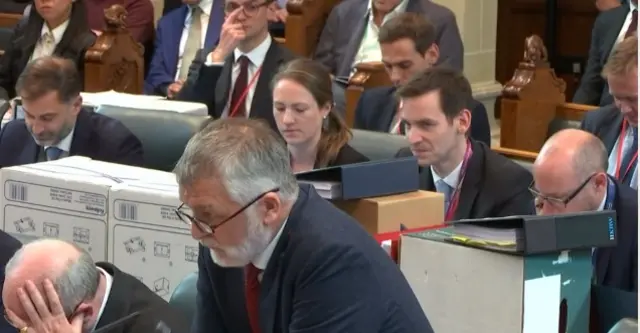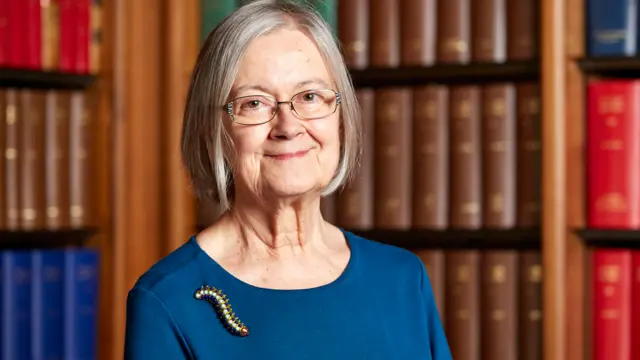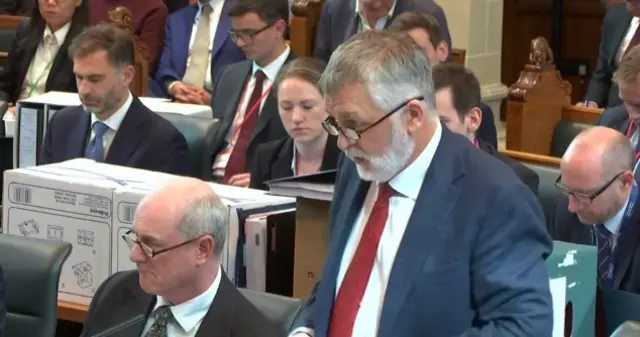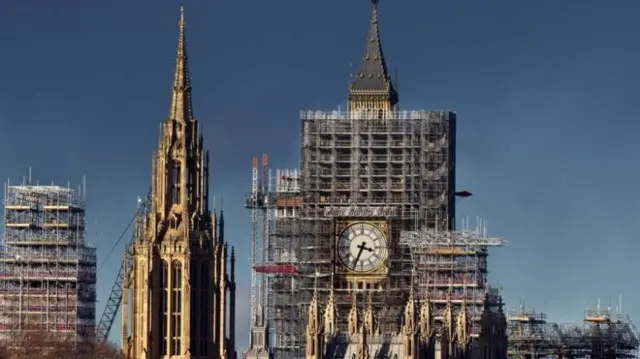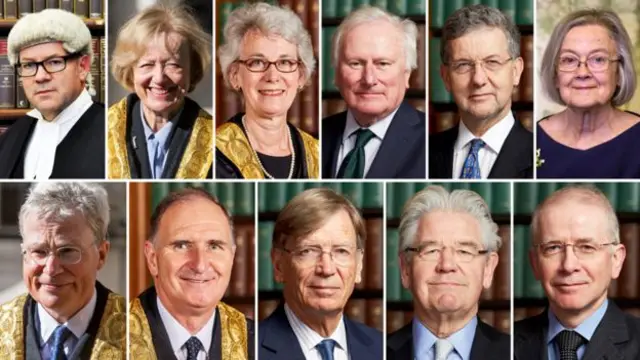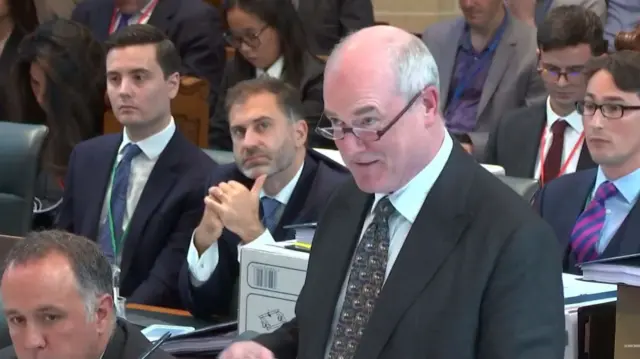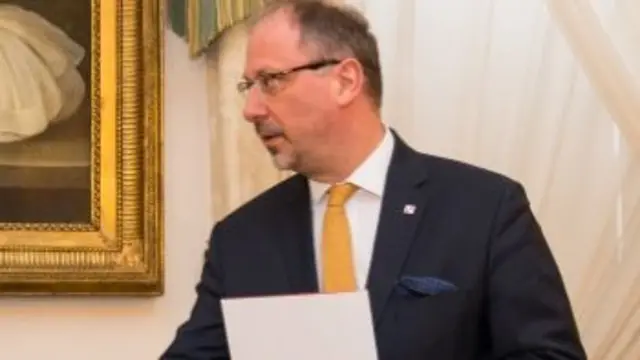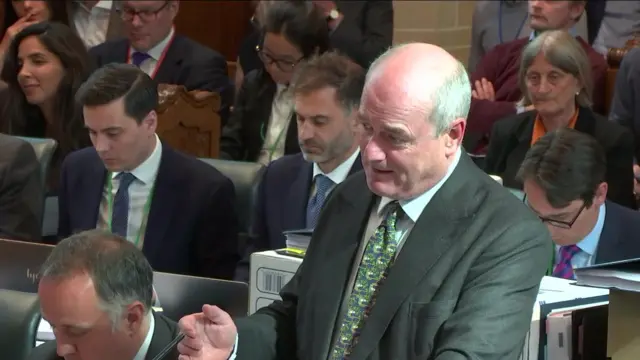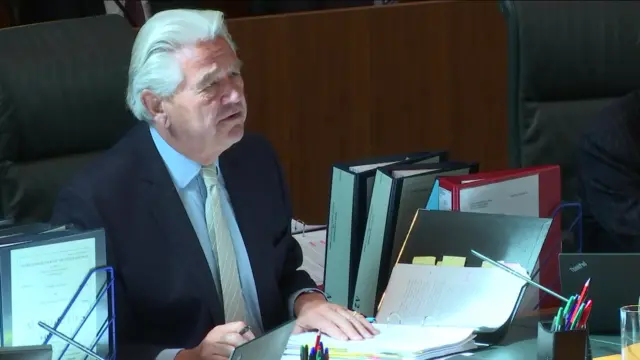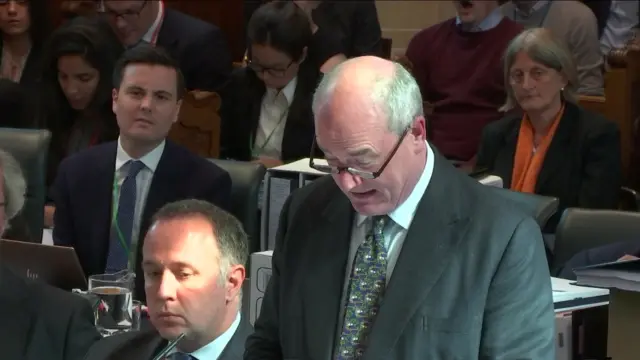Edinburgh court 'not in Westminster bubble'published at 14:21 BST 18 September 2019
Aidan O'Neill QC, repesenting Joanna Cherry QC, is defending their win against the prime minister at the court in Edinburgh.
He is explaining why the Scottish court ruled that Parliament's suspension was unlawful, claiming an advantage of being "400 miles away" from the Westminster "bubble".
Allow X content?
This article contains content provided by X. We ask for your permission before anything is loaded, as they may be using cookies and other technologies. You may want to read X’s cookie policy, external and privacy policy, external before accepting. To view this content choose ‘accept and continue’.
